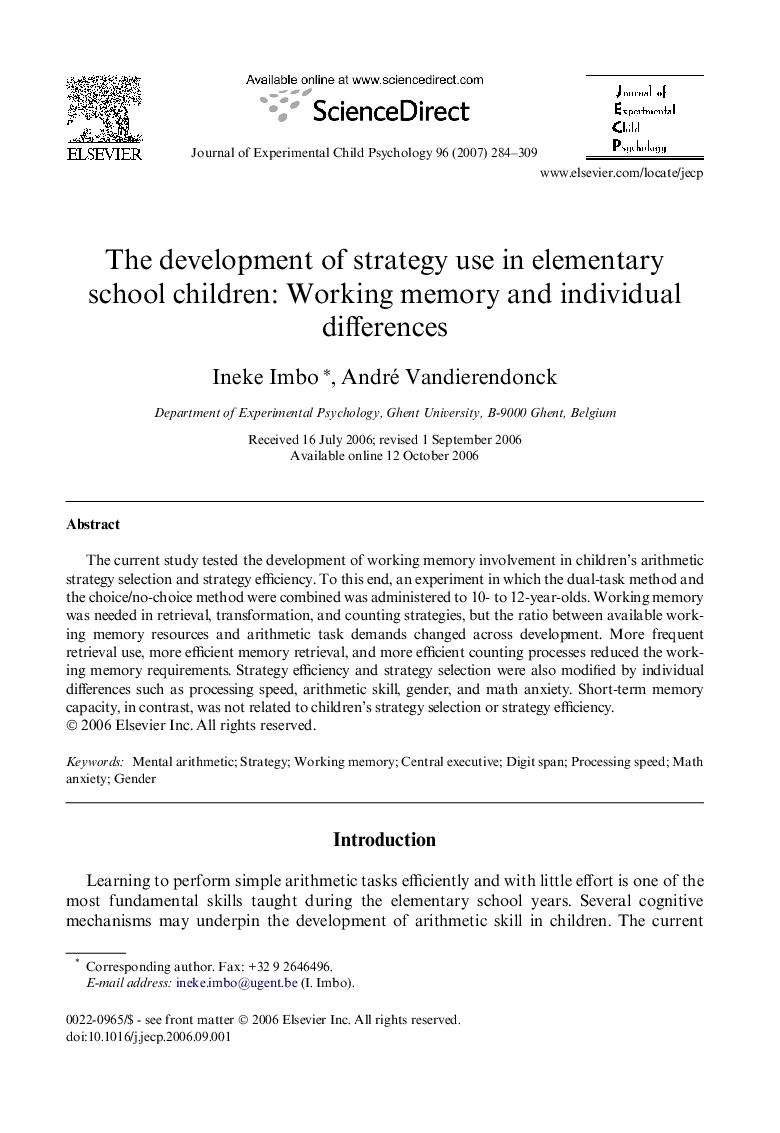| Article ID | Journal | Published Year | Pages | File Type |
|---|---|---|---|---|
| 918864 | Journal of Experimental Child Psychology | 2007 | 26 Pages |
The current study tested the development of working memory involvement in children’s arithmetic strategy selection and strategy efficiency. To this end, an experiment in which the dual-task method and the choice/no-choice method were combined was administered to 10- to 12-year-olds. Working memory was needed in retrieval, transformation, and counting strategies, but the ratio between available working memory resources and arithmetic task demands changed across development. More frequent retrieval use, more efficient memory retrieval, and more efficient counting processes reduced the working memory requirements. Strategy efficiency and strategy selection were also modified by individual differences such as processing speed, arithmetic skill, gender, and math anxiety. Short-term memory capacity, in contrast, was not related to children’s strategy selection or strategy efficiency.
